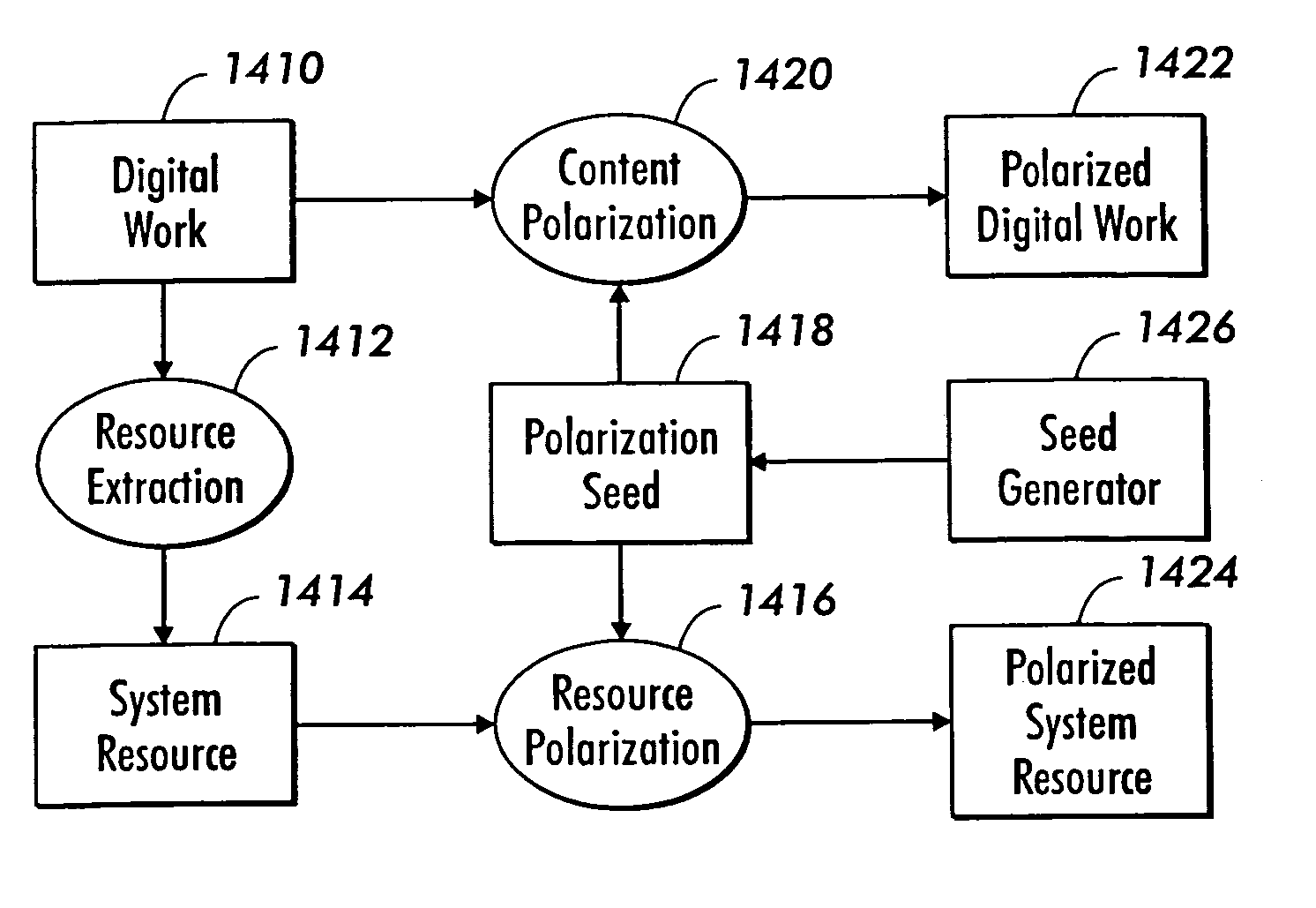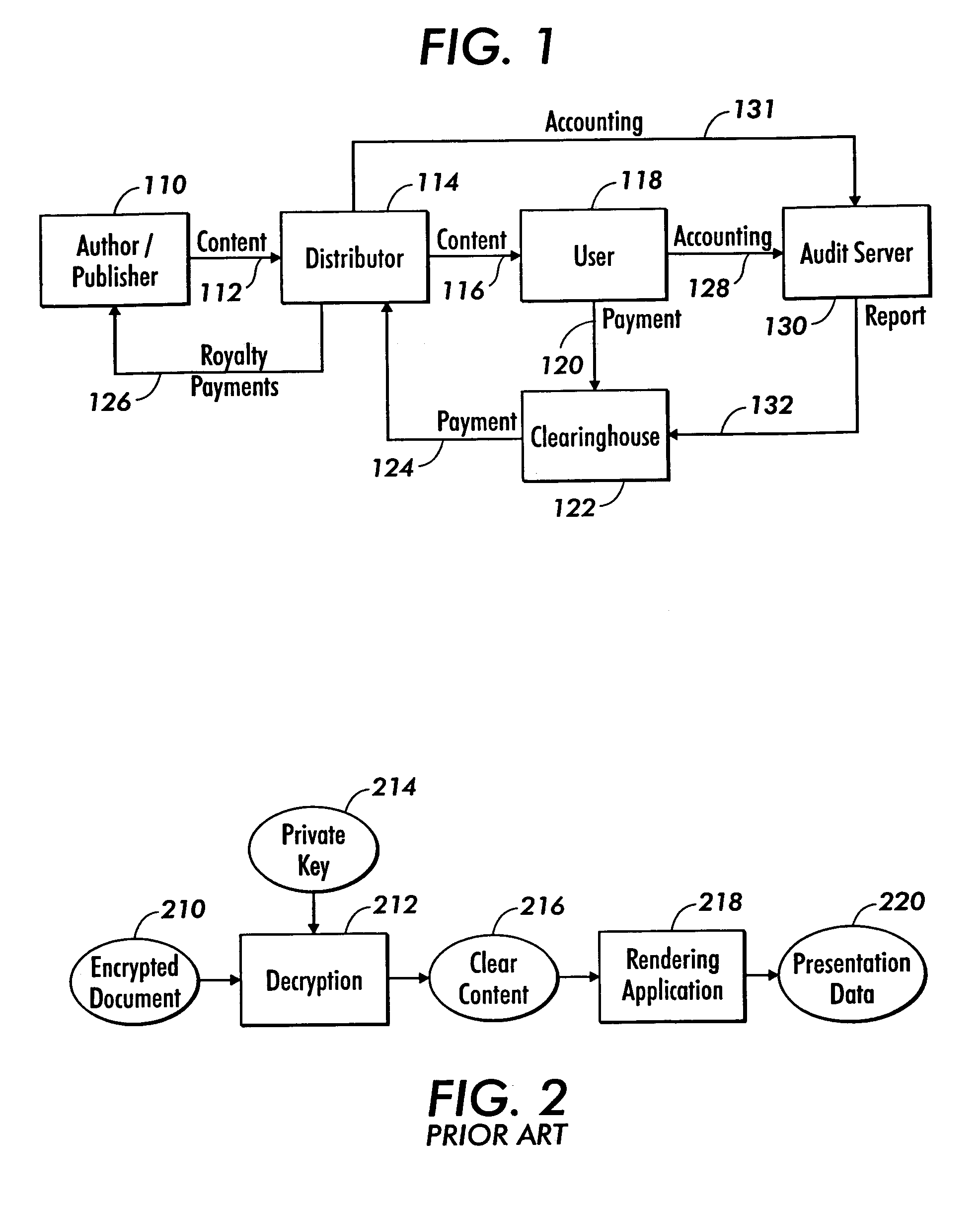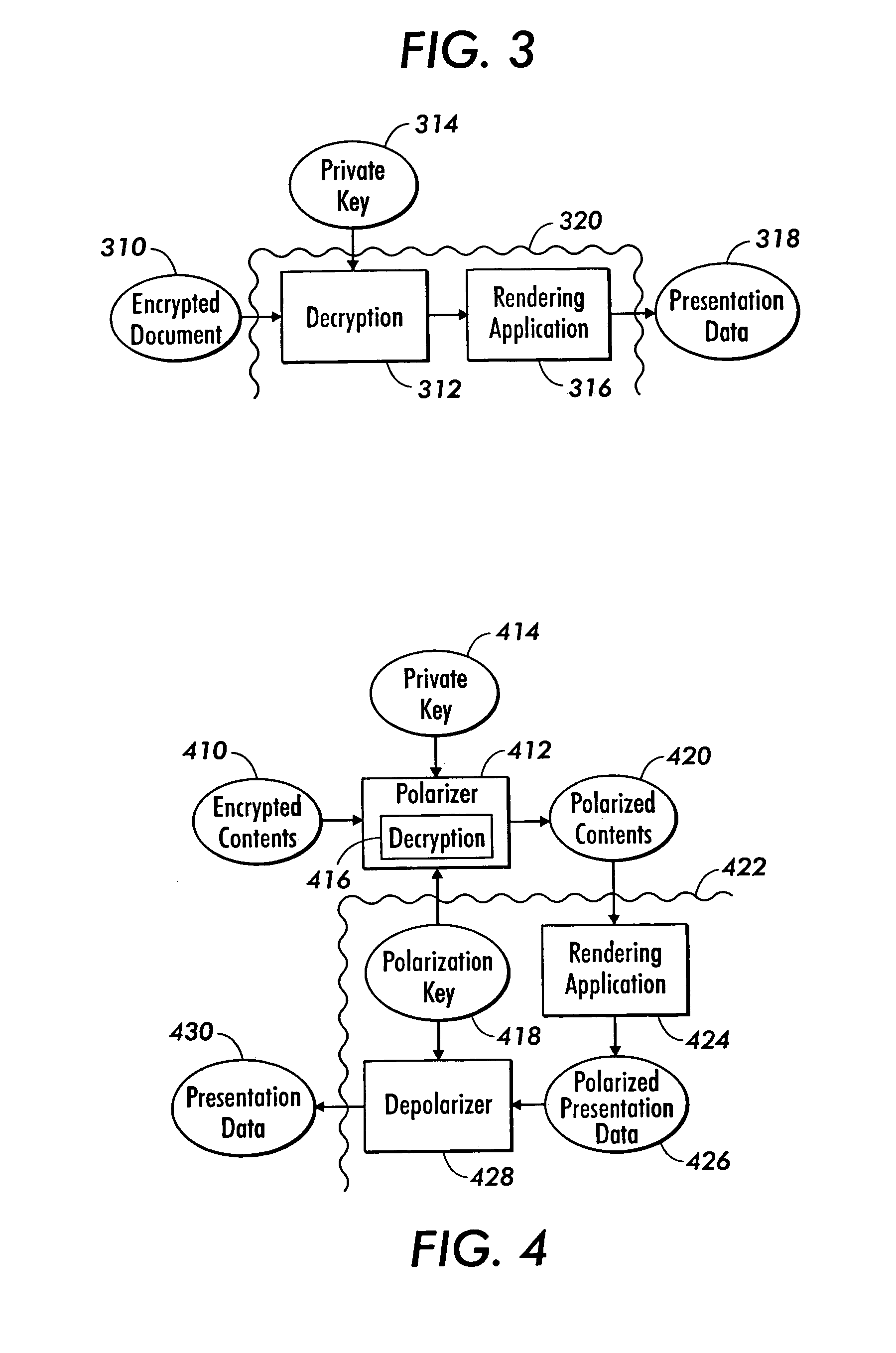System and method for protection of digital works
a digital work and intellectual property technology, applied in the field of document rights management, can solve the problems of unauthorized distribution of electronic documents, easy copying, redistribution of unprotected electronic documents, and no viable way to prevent people from making unauthorized distributions of electronic documents within current general-purpose computing and communication systems
- Summary
- Abstract
- Description
- Claims
- Application Information
AI Technical Summary
Benefits of technology
Problems solved by technology
Method used
Image
Examples
Embodiment Construction
[0067]The invention is described below, with reference to detailed illustrative embodiments. It will be apparent that the invention can be embodied in a wide variety of forms, some of which may be quite different from those of the disclosed embodiments. Consequently, the specific structural and functional details disclosed herein are merely representative and do not limit the scope of the invention.
[0068]FIG. 1 represents a top-level functional model for a system for the electronic distribution of documents, which as defined above, may include correspondence, books, magazines, journals, newspapers, other papers, software, audio and video clips, and other multimedia presentations.
[0069]An author (or publisher) 110 creates a document's original content 112 and passes it to a distributor 114 for distribution. Although it is contemplated that the author may also distribute documents directly, without involving another party as a distributor, the division of labor set forth in FIG. 1 is ...
PUM
 Login to View More
Login to View More Abstract
Description
Claims
Application Information
 Login to View More
Login to View More - R&D
- Intellectual Property
- Life Sciences
- Materials
- Tech Scout
- Unparalleled Data Quality
- Higher Quality Content
- 60% Fewer Hallucinations
Browse by: Latest US Patents, China's latest patents, Technical Efficacy Thesaurus, Application Domain, Technology Topic, Popular Technical Reports.
© 2025 PatSnap. All rights reserved.Legal|Privacy policy|Modern Slavery Act Transparency Statement|Sitemap|About US| Contact US: help@patsnap.com



